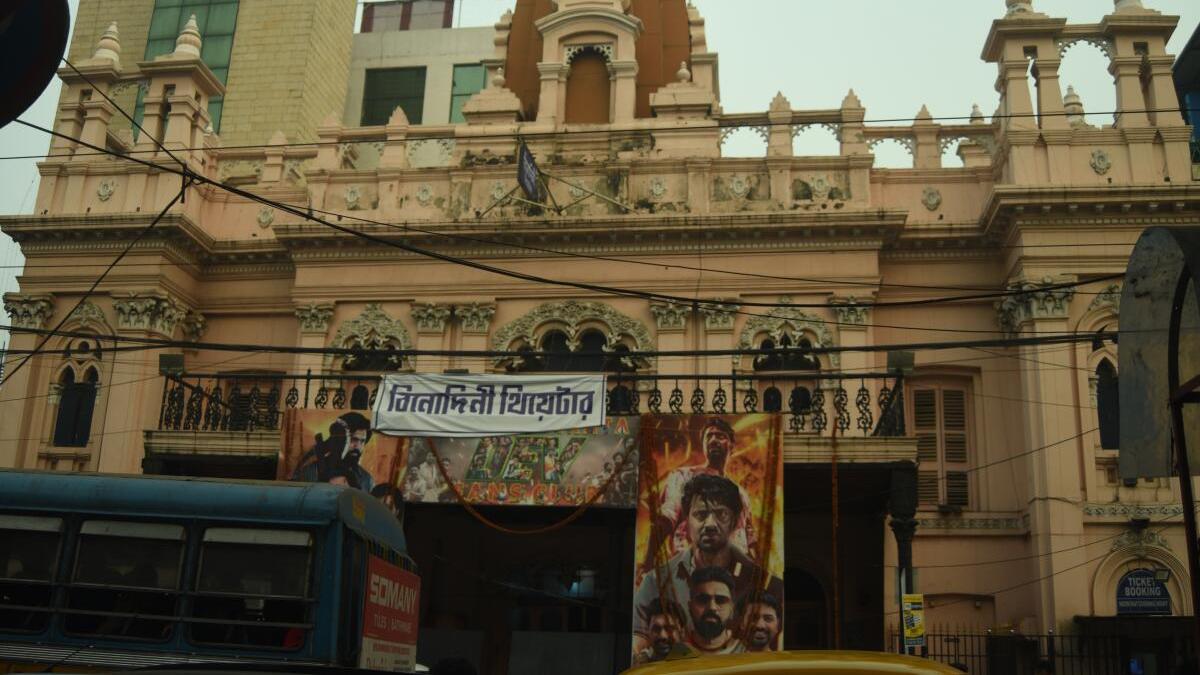The iconic century-old Star Theatre, which stands tall and ornate at the intersection of Aurobindo Sarani and Bidhan Sarani in North Kolkata as a pillar of Bengal’s historic theater traditions, now bears a different name plaque – ‘Binodini Theatre’.
A few days after West Bengal Chief Minister Mamata Banerjee announced the renaming of Star Theater to Binodini Theater on 30 December, all banners and plaques in the auditorium were immediately changed to reflect the new name. While this change may seem innocuous to some, many in the Bengali theater world consider it historically significant – a long-awaited reparation for 19th-century theater artist Binodini Dasi.
According to author, theater researcher and businessman Sudhasatya Ghosh, the original Star Theatre, which was established at 68, Beadon Street in 1883 and was demolished and shifted by 1930, should have been named after Binodini.
“The theater stalwarts of the early 19th century, like Girish Ghosh, Amritlal Basu, Ardhendu Shekhar Mustafi, wanted to practice Bengali theater autonomously, outside the zamindari patronage, which was the norm before them,” Mr Ghosh said. “So he approached Binodini to help him attract Punjabi businessman Gurmukh Rai and raise funds for a commercial theater space in the heart of the city.”
She said that female theater practitioners at the time were primarily sex workers, and were supported as theater artists by their wealthy patrons. Between the 1870s and 1880s, Binodini became a well-known and widely popular actress, known for her acting, singing and dancing, and whose name alone could draw huge crowds to see Bengali plays in Kolkata. .
‘Binodini started theater in her teenage years. She had a lover whom she wanted to marry, but people like Girish Ghosh convinced her to pursue a courtship with Mr. Rai, whom she believed could help establish an autonomous theater space ,” Mr Ghosh said. “However, the promise made to Binodini was that the auditorium would be named after her – B Theater or Binodini Theatre.”
He said that Binodini not only sacrificed her love affair to help fund the theater in Beadon Street, but also performed manual labor to help build the auditorium.
However, when the auditorium was finally registered in March 1883, contrary to the promise made to it, it was named Star Theater instead of B Theater or Binodini Theatre.
“They were told that audiences would not want to see a theater in a venue named after a sex worker. Binodini felt cheated and insulted. That’s one reason why he retired from theater at the age of 24,” Mr Ghosh said.
In his Bengali autobiography Amar Katha (My Story), Binodini Dasi devoted a chapter to Star Theatre. Recalling the moment she realized it was not named after her, she wrote, “It felt as if my heart had been attacked a hundred times, I couldn’t speak for a while… I wondered if my His affection for her was just a show to get his work done.” Done through me.”
However, the Star Theater’s operations gradually declined and it was eventually sold before 1888. Subsequently, the auditorium on Beadon Street was renamed and rechristened several times as ‘Emerald’, ‘City’, ‘Kohinoor’ etc., Mr Ghosh said. , but was eventually demolished in the early 1930s when Central Avenue was being built.
Meanwhile, the brand ‘Star Theatre’ began in 1888 as a new auditorium at the intersection of Bidhan Sarani and Aurobindo Sarani, where it now stands as Binodini Theatre.
Today, the newly named Binodini Theater serves as a movie hall and has an art gallery and amphitheater at the rear, also named after Binodini Dasi. In ticket booking sites and online search engines, Star Theater now appears as Binodini Theatre.
The former location at 68, Beadon Street is now home to a dilapidated eatery, a shop selling tea leaves and a small paan shop.
“Binodini performed extensively for almost a decade. Her sacrifice and her work at that time are instrumental in bringing Bengali theater to what it is today, especially with regard to women’s participation in theatre,” he said.
The same sentiment was expressed by Abanti Chakraborty, who wrote and directed a contemporary Bengali play, ‘Binodini Opera’, which pays homage and retells Binodini’s life story.
“Binodini’s contribution to Bengali theater is incomparable. It is because of her and other women theater practitioners of that time, that women like me can now practice theatre,” Ms Chakraborty said.
However, both Mr Ghosh and Ms Chakraborty agree that renaming Star Theater after Binodini does little to pay tribute to her theater legacy.
“First of all, it was not the Star Theater established by Binodini, Girish Ghosh and others on Beadon Street. That no longer exists, and Binodini had no connection with the one that was set up the second time,” Ms Chakraborty said. “Also, it is now a movie hall, not a theater space.”
According to him, setting up a new auditorium in Binodini’s name will help preserve her legacy and help contemporary Bengali theater flourish.
“The Star Theater as we know it now, despite not being related to Binodini, has a century-old history of its own. Instead of starting a new auditorium, changing its name also erases Star’s own legacy,” Mr Ghosh said. Like Ms Chakraborty, he reiterated that a new theater space could have helped pay tribute to the actor and revive present-day Bengali theatre.
published – January 11, 2025 03:31 PM IST
